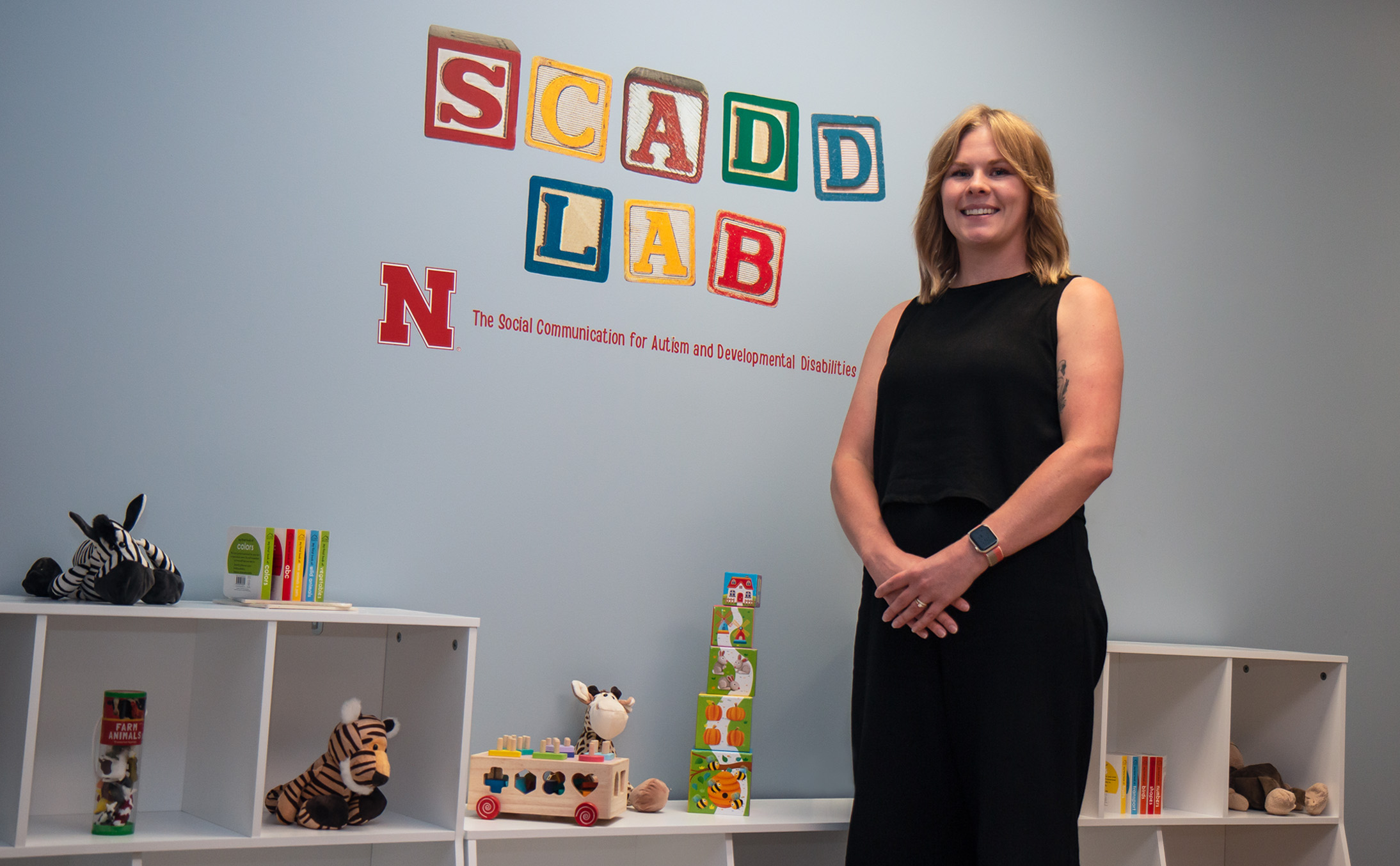
Research explores technology to support speech among children with autism
12 Oct 2023 By Chuck Green, CYFS
As a former special education teacher, Ciara Ousley has worked with young students diagnosed with autism spectrum disorder.
She often used technology to assist students who struggled to communicate in her classroom. Speech-generating devices — one form of augmentative and alternative communication (AAC) — showed promise to support more inclusive learning and development.
“But I didn’t know what was happening at home,” said Ousley, now an assistant professor of special education and communication disorders. “I didn’t know whether the parents ever received training on how to use the AAC device.”
For the nearly 7 million American children diagnosed with autism who have not developed functional vocal speech, communication can be quite difficult — and frustrating. Research suggests that early interventions that use AAC technology in play time and other natural contexts where communication takes place may enhance language and social skills, and play aptitudes among children with autism.
Using funding from an Office of Research and Economic Development Layman Seed Award, Ousley will evaluate the effects of embedding AAC within storybook reading and play time with young children with autism, ages 2-5, who have either limited or no vocal speech. She will pinpoint which strategies best enhance social communication skills, and will assess the feasibility of using those strategies as a foundation for an online AAC training program for parents.
“I want to teach parents the most effective approach for their child,” she said. “Ultimately, I want these parent trainings to be efficient and feasible, rather than feeling like a burden to use these strategies.”
Ousley aims to recruit 10 children, ages 2-5, who have either been diagnosed with autism or have been referred from clinicians who suspect they may have delayed communication skills. The children will visit Ousley's Social Communication for Autism and Developmental Disabilities (SCADD) Lab, where their 10-minute interactions with her — either reading books or playing together, using AAC — will be recorded and evaluated.
Because much of her previous work has used tele-health, Ousley is eager to personally interact with the children.
“I’ll actually be the communication partner, so I’ll be able to get that perspective of what it’s like to be the adult during play time with these children,” she said.
Ousley notes that introducing AAC systems into social communication interventions can lead to increased cognitive demands on the child — and additional challenges for the parent or caregiver communicating with the child.
In a previous study, one family included a child who used an AAC device. Ousley noted that the interactions between the child using AAC and his parent looked different when compared to the other children who were somewhat vocal. She also noticed the parent was overwhelmed having to engage in the play while also focusing on the AAC device.
“The introduction of AAC is very powerful for the child, but the interaction changes,” Ousley said. “For example, attention has to be shifted from another object or person within the interaction; the child goes from play to the AAC to the person. It takes a lot more time for the child to be able to share what they're thinking. Unfortunately, there is little research on the most feasible way to introduce AAC within play time with parents.”
Ousley’s goal is to expand training to practitioners on how to coach parents.
“If I can train future teachers and future speech pathologists to train parents, there are so many more children that can be supported,” she said.
Learn more about this project on the CYFS Research Network. This project aligns with the UNL Grand Challenges of early childhood education and development, and health equity.
College of Education and Human Sciences
Special Education and Communication Disorders
Thriving Young Children
Comprehensive Health & Well-Being